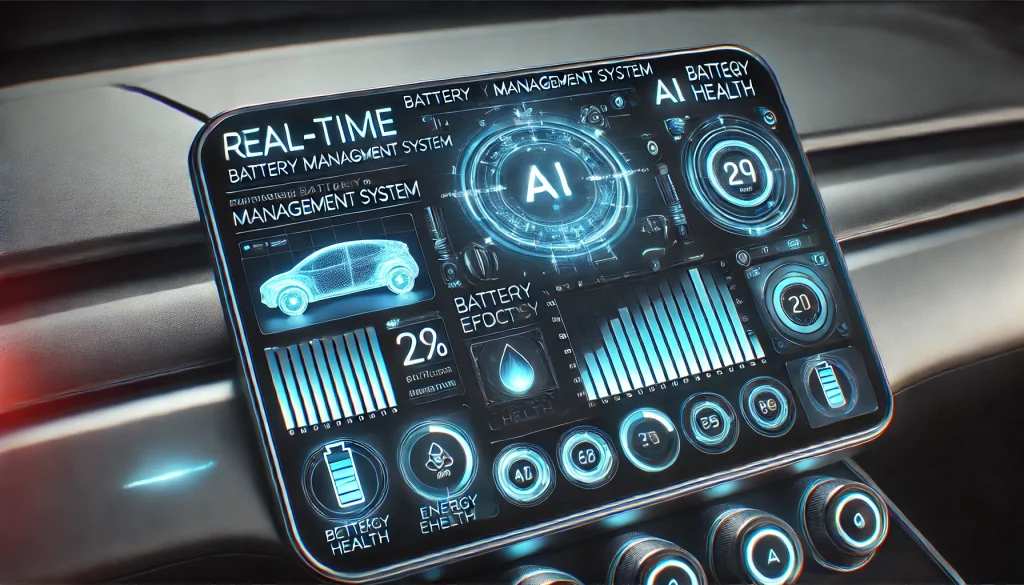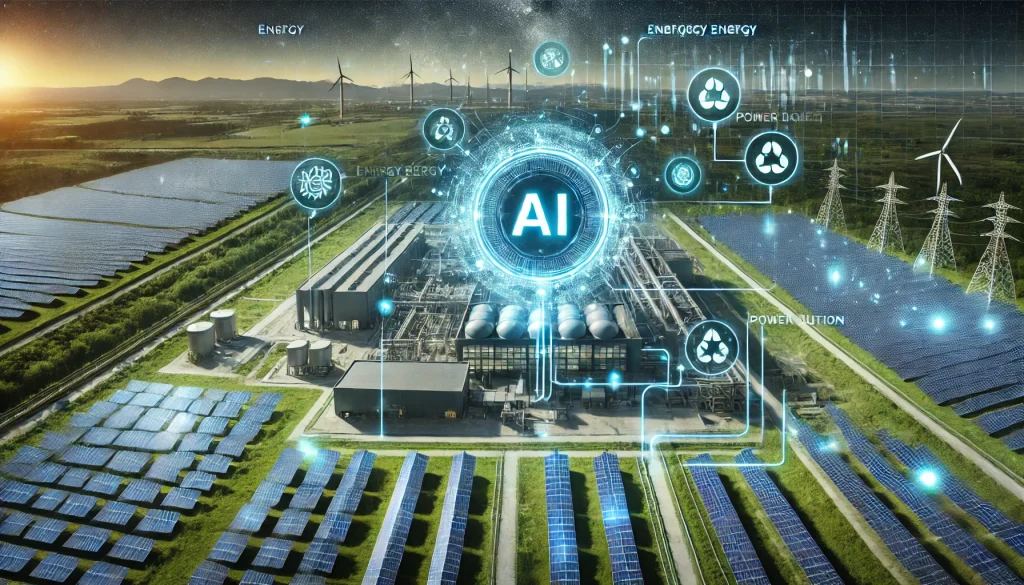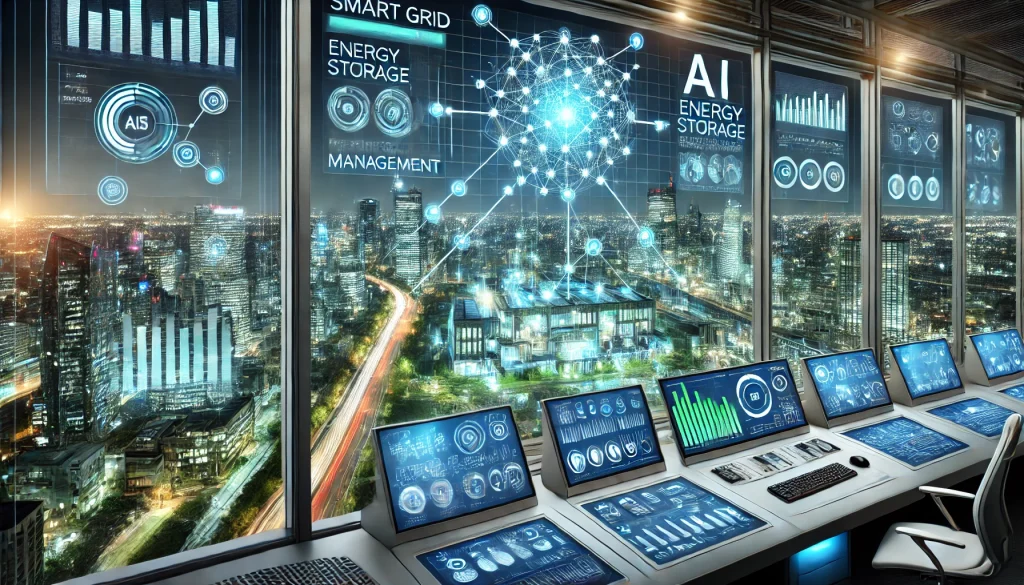
AI-powered battery management system (BMS) are revolutionizing energy storage, especially in industries like electric vehicles (EVs) and renewable energy. As lithium-ion and LIFEPO4 batteries drive technological progress, optimizing their performance and lifespan has become crucial. By September 2024, BMS technology has advanced significantly, with AI and machine learning at the forefront, enabling smarter, more sustainable energy solutions.
In today’s fast-evolving tech landscape, AI is reshaping battery management by tackling challenges like thermal regulation, charging efficiency, and battery degradation. These innovations signal a future where energy efficiency and intelligence seamlessly combine, driving the next generation of battery technology.
The Power of AI in Battery Management Systems
The adoption of AI in BMS marks a significant shift for industries relying on lithium-ion and LIFEPO4 batteries. AI algorithms enable real-time decision-making by monitoring temperature, charge cycles, and battery health, optimizing performance. This not only boosts efficiency but also extends battery lifespan, a crucial benefit for sectors like electric vehicles and renewable energy storage.
Latest Updates in AI-Powered BMS Technology
2024 has marked significant progress in AI-powered battery management systems. A key development is the integration of AI-powered BMS on a chip, making systems more compact and efficient by embedding machine learning algorithms directly into hardware. This innovation enables real-time data processing, reducing decision-making delays and optimizing battery usage dynamically.
Additionally, AI-driven predictive maintenance has advanced. AI can now predict battery degradation before it occurs, enabling preemptive action to extend battery life. By analyzing historical data, these models detect patterns that signal future issues, reducing the risk of unexpected failures, especially in electric vehicles.
What’s New in AI BMS for Lithium-Ion and LIFEPO4 Batteries?

Recent advancements in AI-powered BMS emphasize enhanced thermal management. These systems now regulate battery temperature with remarkable precision, adjusting power output and charging speed in real time to prevent overheating—a common cause of battery failure. For EVs using lithium-ion or LIFEPO4 batteries, this control extends battery life and improves safety.
Additionally, AI helps balance energy consumption across battery cells. In large packs, imbalances can lead to inefficiency and damage. AI-powered BMS detects these issues early and redistributes energy, ensuring all cells perform optimally. This reduces the risk of cell deterioration and prolongs overall battery lifespan.
| Feature | Traditional BMS | AI-Powered BMS |
|---|---|---|
| Predictive Maintenance | Limited | Real-time, AI-driven predictions |
| Energy Efficiency | Basic optimization | AI-optimized energy distribution |
| Thermal Management | Manual or fixed threshold-based | Dynamic, real-time AI regulation |
| Data Processing | Slower, manual analysis | Instant, real-time AI processing |
Effects of AI on Battery Performance and Sustainability
AI-powered BMS impacts both the environment and consumer experiences. By optimizing charging cycles, AI reduces energy use and lowers the carbon footprint. Additionally, AI extends battery life, decreasing the demand for new batteries and easing pressure on the supply chain for materials like lithium and cobalt.
For consumers, especially EV owners, AI-powered BMS leads to fewer maintenance issues and longer-lasting power. Real-time monitoring detects potential problems early, preventing costly repairs and downtime. Moreover, AI improves efficiency, resulting in faster charging times and extended driving range—key benefits for EV adoption.
What to Know About the Industry Shift
Industries are rapidly adopting AI-powered battery management. By September 2024, major automakers, renewable energy providers, and consumer electronics companies are integrating AI into their battery systems, driven by improved safety, performance, and reliability. With electric vehicles leading the charge, this technology will soon expand to energy storage and portable electronics.
AI in BMS technology not only enhances performance but also promotes sustainability. By optimizing energy storage, distribution, and consumption, AI reduces environmental impact, cuts waste, and fosters a more energy-efficient future.
Conclusion: Why AI-Powered Battery Management Systems Matter in 2024

In conclusion, AI-powered battery management systems are revolutionizing the energy and transportation sectors. By optimizing battery performance in real-time, AI extends battery life, improves efficiency, and enhances safety—crucial for electric vehicles and renewable energy. September 2024 has introduced exciting advancements like predictive maintenance and thermal regulation, setting new performance standards.
For consumers and businesses, AI-powered BMS offers reduced energy costs, longer-lasting batteries, and greater sustainability. As industries continue adopting AI solutions, the future of battery management promises smarter, more efficient systems driving a more sustainable, energy-conscious world.
FAQ
What are the benefits of AI-powered battery management systems?
AI-powered BMS offers several advantages, including improved battery lifespan, better energy efficiency, real-time optimization, and predictive maintenance that prevents premature battery failures.
How does AI improve battery performance?
AI uses real-time data analytics and machine learning to monitor battery health, predict degradation, optimize charging cycles, and regulate temperature, ensuring the battery operates at its highest efficiency.
Are AI-powered BMS systems more sustainable?
Yes, AI-powered BMS systems help reduce energy consumption by optimizing battery usage and extending the battery’s life, which decreases the demand for new batteries and reduces the environmental impact of battery production.
Resources
Eatron Technologies. The Future of Battery Management: AI Power on the Edge.
EV Engineering Online. New AI-Powered Battery Management System That’s on a Chip.
Monolithic Power Systems. AI and Machine Learning in BMS.
ELE Times. AI-Powered Battery System on Chip: A Masterstroke in Battery Management System.
New Atlas. AI-Controlled Battery Management System: More Power, Longer.
